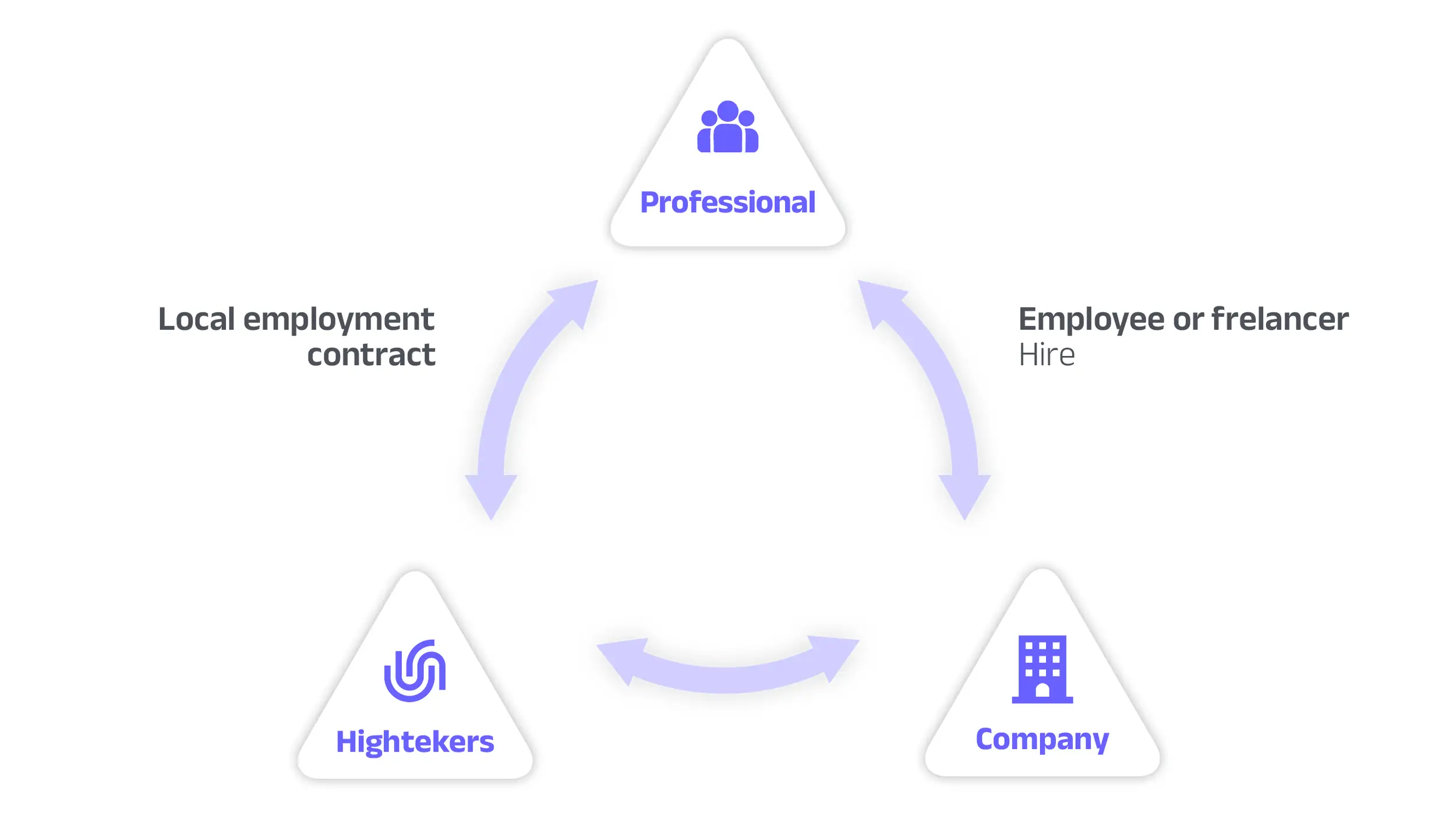You must apply within six months of moving to Spain and starting your professional activity. The process involves submitting Form 149 to the Spanish Tax Agency along with proof of relocation and employment. Hightekers can handle this process on your behalf. Check our Step-by-Step Guide for Freelancers Applying for the Beckham Law in Spain
The Beckham Law applies only to employees with contracts from Spanish companies or those transferred by multinational corporations — not to self-employed workers.
However, through Hightekers, freelancers and independent professionals can still benefit. We act as your legal employer in Spain, allowing you to access the special tax regime while keeping your clients, flexibility, and independence.
Under the Beckham Law, most foreign-sourced passive income (e.g. dividends, interest, capital gains from abroad) is exempt from Spanish taxation; only your Spanish-source income is subject to tax.
The Beckham Law applies to foreigners relocating to Spain for work — whether through a local employment contract, an international transfer, or as a director or shareholder of a Spanish company (if meeting certain business structure conditions).
Since the 2023 “Start-up Law” reform, digital nomads holding a remote work visa and employed by foreign companies can also qualify under this special tax regime.
Yes — under updated regulation, remote workers employed by foreign companies and holding a Digital Nomad Visa can apply for the Beckham Law, while living and working legally in the country.
The Beckham Law takes its name from footballer David Beckham, who was among the first high-profile individuals to benefit from this special tax regime when he moved to play in Spain.
Although officially known as Spain’s Special Expat Tax Regime, the nickname “Beckham Law” became popular because it was originally designed to attract foreign talent — not only in sports, but across all professional sectors.




